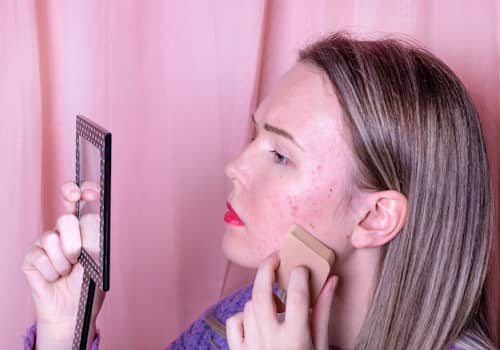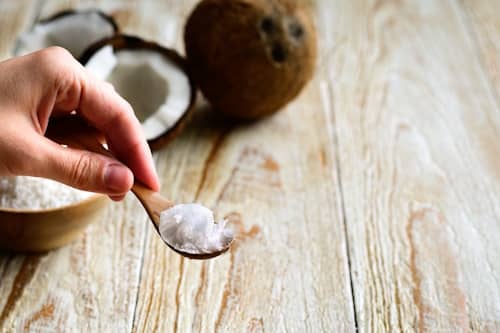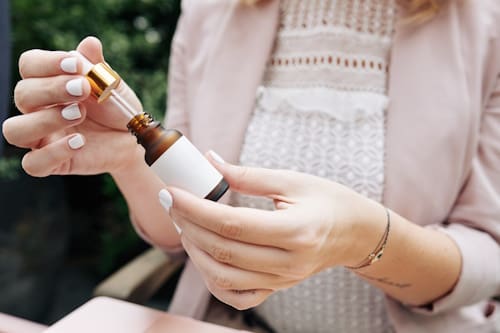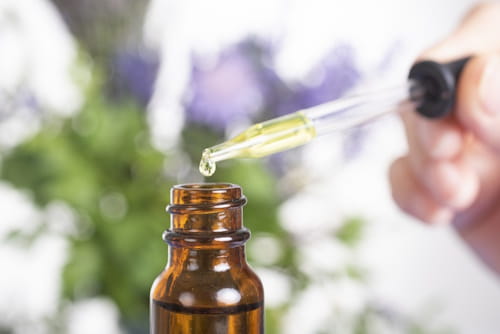Acne is one of the most widespread skin conditions affecting people of all ages and skin types. It’s frustrating when acne still finds its way to your skin despite following a religious skincare routine. Worse, some commonly found ingredients in your skincare products can cause acne.
Some ingredients are notorious for clogging pores, leading to acne-prone skin. This guide will unveil seven common ingredients that cause acne. We’ll dive deep into each ingredient, explaining how they contribute to acne breakouts and what alternatives you should consider.
Biggest Take-Aways:

Hormonal Acne and Its Triggers
Before we delve into the ingredients that cause acne, let’s briefly touch on hormonal acne. Hormonal acne is often triggered by hormone fluctuations, particularly androgens, which can cause the skin to produce excess oil or sebum.
While hormonal acne can be challenging to control, certain ingredients in skin care products can aggravate it further. Knowing what ingredients to avoid can make a significant difference in managing your acne-prone skin effectively.
7 Notorious Ingredients That Cause Acne
Unraveling the ingredient list on skincare products can be like decoding a complex puzzle. But worry not; we’re here to demystify these enigmatic terms for you.
1. Coconut Oil
Why it Causes AcneCoconut oil has gained considerable attention for its multiple skincare and hair care uses. However, coconut oil is less than ideal when it comes to acne-prone skin. This natural ingredient is highly comedogenic, meaning it can clog pores. The lauric acid in coconut oil can be troublesome for those with acne-prone skin.

Alternatives to Consider
2. Cocoa Butter
Why it Causes AcneCocoa butter is often found in moisturizers and lotions. While it can soften skin, its pore-clogging capabilities make it a risky choice for acne-prone skin types.
Alternatives to Consider
3. Lauric Acid
Why it Causes AcneLauric acid is found in coconut oil and many skincare products designed to treat acne. Ironically, it is comedogenic and can exacerbate acne conditions by clogging pores.
Alternatives to Consider

4. Sunscreen Ingredients
Why They Cause AcneCertain chemical sunscreens contain not only comedogenic ingredients but also irritate the skin, leading to inflamed acne.
Alternatives to Consider
5. Alcohol-Based Products
Why They Cause AcneAlcohol can strip the skin of its natural oils, causing it to produce more sebum, thus leading to clogged pores and acne.
Alternatives to Consider
6. Synthetic Fragrances
Why They Cause AcneArtificial fragrances can cause inflammation and allergic reactions, manifesting as acne breakouts on sensitive skin.
Alternatives to Consider

7. Sodium Lauryl Sulfate (SLS)
Why it Causes AcneSLS is a common ingredient in cleansers and shampoos. It can irritate the skin and hair follicles, leading to clogged pores and acne.
Alternatives to Consider
Navigating the Skincare Aisle: Tips for Choosing Products
Now that you know the ingredients that cause acne, how do you select the right skincare products? Here are some tips:
Experience Clear Skin with Exposed Skin Care
Navigating the maze of skincare ingredients can be daunting, especially when managing frequent acne breakouts. That’s wherecomes into play, offering a comprehensive range of skincare products specifically formulated for acne-prone skin.
Here’s how Exposed Skin Care can benefit you:
So, if you suffer from acne and are looking for products that promote clear skin, Exposed Skin Care could be your go-to solution. It’s designed to keep your skin clear without complicating your routine with a long list of pore-clogging ingredients to avoid.